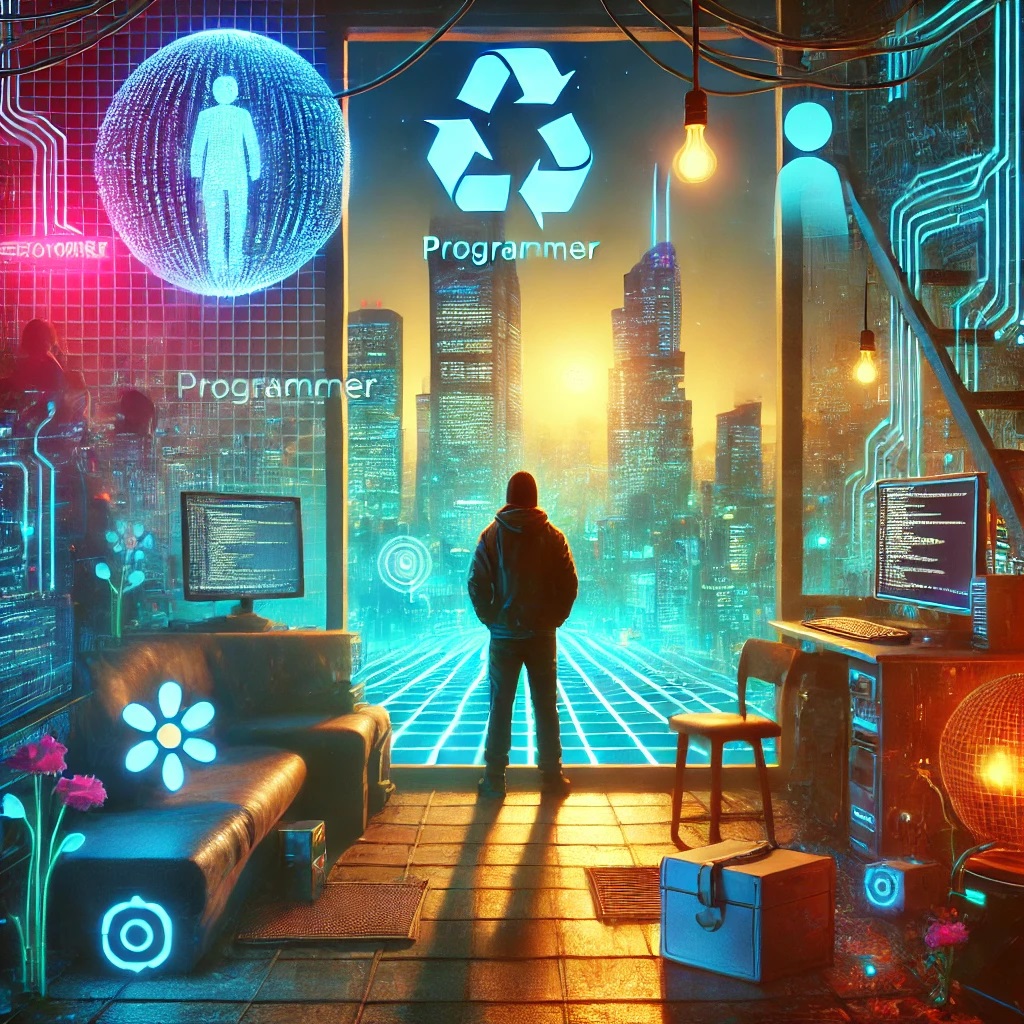
Dear me in 2002,
Back in the early nineties, you began your journey into programming, inspired by your father, who was a systems analyst working with large-scale mainframes. I remember you picking up a Visual Basic book—a real bible, over 500 pages long, and all in English. At the time, you didn’t even speak the language, but that didn’t stop you from diving in and taking your first steps into the world of coding.
Now, you are at another pivotal moment in your life, about to take your first professional steps as a programmer. There may be some uncertainty about which direction to follow, but I’m here to tell you: the choices you’re about to make will be the seeds of a career full of challenges, learning, and achievements.
You chose to enter the world of Microsoft technologies, betting on .NET right at the beginning of it´s journey in Brazil. Java was there too, of course, and even though both continue to be strong after all these years, each has had a particular impact on the industry. But the choice of .NET turned out to be the right one—you caught the wave as it was starting and grew along with the technology. This definitely propelled your career, positioning you in the midst of large projects and the companies that needed exactly what you were learning to offer.
Look back at the number of integrations you’ve done over the years. It may seem commonplace now, but in 2002 it wasn’t as clear that the future of systems would lie in not working alone, but as part of an increasingly interconnected ecosystem. Your skills in creating link points between systems, making collaboration between services appear seamless, will only become more valuable.
And when you deviated from the expected path—the dev career, then manager, then architect—to take on an entire startup, it was a moment of courage. Not everyone would have taken that risk, but the experience you gained in that process was unique. You had to make everything work, deal with financial and operational pressures, and above all, people’s expectations. This experience gave you something you don’t learn in courses or certifications—a deep understanding of the responsibility it takes to make something thrive from end to end.
When you returned to the developer and architect career, it was necessary to catch up. The tech world waits for no one. You dedicated yourself to learning, understanding new demands—from microservices to Kubernetes and cloud integrations. You never stopped reinventing yourself. And this, I say, is one of your greatest strengths: the ability to adapt and learn continuously.
Today, not only are systems connected, but the entire world seems to function almost as one. Learning English, despite all the difficulties and traumas it brought, positioned you very well. Remote work has become a reality, and now you can work from anywhere to anywhere. The long hours of hard work abroad have brought qualities that help you deal with projects with team members from all over the world.
It may sound cliché, but languages and technologies are just tools. Whether with .NET, Java, Python, or Ruby, what truly sets you apart is the commitment to understanding problems and finding solutions, the ability to lead teams, to be curious, and above all, the courage to take unconventional paths.
You are and will always be more than a developer. You are a problem solver, a mentor, and a professional who understands the importance of connections, whether between systems or between people. Keep believing in that and never stop exploring.
With gratitude and hope, Your future self